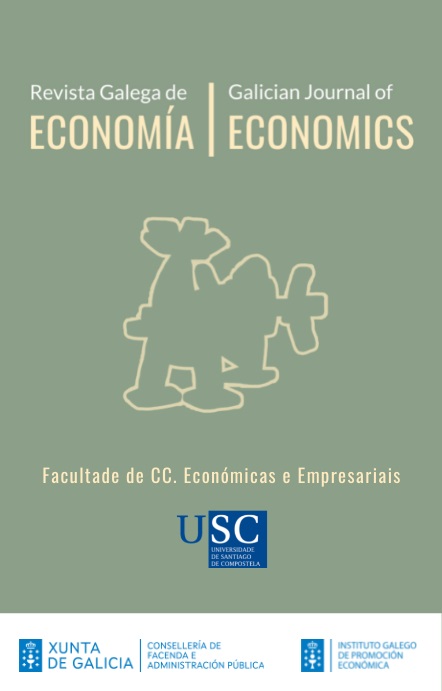El euro: moneda única o Currency Board
Contenido principal del artículo
Resumen
Palabras clave:
Detalles del artículo
Referencias
ARIAS, X.C.; COSTAS, A. (2011): La torre de la arrogancia. Políticas y mercados después de la tormenta. Barcelona: Ariel.
COSTAS, A. (2011a): “La medicina de Merkel es engañosa”, El País, de 13/02/11.
COSTAS, A. (2011b): “El error Merkel”, El País, de 27/03/11.
DE GRAUWE, P. (2011): “La crisis de la deuda soberana y el futuro del euro”, Claves de la Economía Internacional, 3, pp. 16-23.
DE GRAUWE, P.; MOESEN, W. (2009): “Gains for All: A Proposal for a Common Eurobond”, Intereconomics, 33, (May-June), pp. 132-141.
DELPLA, J.; VON WEIZSACKER, J. (2010): The Blue Bond Proposal. (Bruegel Policy Brief, 2010/3). Brussels: Bruegel. <http://www.bruegel.org/publications/>.
FELDSTEIN, M. (2011): The Euro and European Economic Performance. (NBER Working Paper, 17617). Cambridge, MA: National Bureau of Economic Research (NBER).
HAUFLER, A. et al. (2010): The Plenum of German Economists on the European Debt Crisis. <http://www.voxeu.org>.
HIRSCHMAN, A.O. (1984): “Tres usos de la economía política en el análisis de la integración europea”, en A.O. Hirschman: De la economía a la política y más allá. Ensayos de penetración y superación de fronteras. México, DF: Fondo de Cultura Económica.
KINDLEBEGER, CH.P. (1992): “La Comunidad Europea: ¿jerarquía o federación?”, en Ch.P. Kindleberger: El orden económico internacional: ensayor sobre las crisis financieras y los servicios públicos internacionales, cap. 12. Barcelona: Crítica.
PETIT, P. (2012). “Building Faith in a Common Currency: Can the Eurozone Get Beyond the Common Market Logic?”, Cambridge Journal of Economics, 36, pp. 271-281.
STEINMEIR, F.W.; PEERTEINBRÜCK, P. (2011): Financial Times, de 15/12/11.
THE ECONOMIST (2011): “One Nation Overdrawn”, The Economist, de 17/12/11.
TORRERO, A. (2011): Cuatro lecciones sobre la crisis financiera. Barcelona: Marcial Pons.
WOLF, M. (2010a): “Ireland Refutes the German Perspective”, Financial Times, de 23/11/10.
WOLF, M. (2010b): “The Eurozone Needs More than Discipline from Germany”, Financial Times, de 21/12/10.






